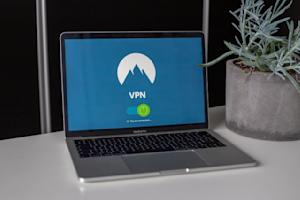Why RADIUS Still Matters
RADIUS has been a cornerstone of secure network access for more than two decades. It quietly authenticates users connecting to Wi-Fi, VPNs, and wired networks in companies, universities, and data centers around the world.
But the way we connect has changed. Networks now span offices, cloud environments, and roaming users. Authentication requests often travel across untrusted paths — sometimes even public internet links — where traditional RADIUS, designed for simpler, closed network environments, starts to show its age.
To keep up, organizations need the same proven RADIUS framework, but with stronger transport security. That’s exactly what RadSec, or RADIUS over TLS, delivers.
What is RadSec?
RadSec is an evolution of RADIUS that sends authentication, authorization, and accounting (AAA) data over encrypted TLS connections instead of unencrypted UDP.
When a RADIUS client, like a wireless controller or VPN gateway, talks to a RADIUS server over RadSec, the two sides establish a mutually authenticated TLS tunnel. Inside that tunnel, every RADIUS packet is encrypted and verified for integrity.
This simple shift in transport has major benefits:
Credentials and policies stay private.
Packets can’t be altered or spoofed.
Connections are reliable and traceable via TCP.
RadSec also fulfills the security and interoperability requirements of modern roaming frameworks such as eduroam and enterprise multi-site Wi-Fi, where authentication requests may traverse multiple or untrusted domains.
Why RadSec Matters Now
Traditional RADIUS over UDP is fast and lightweight but lacks encryption, packet integrity, and reliability. It depends on MD5 hashing — a standard considered obsolete for years. In today’s distributed, zero-trust environments, that’s no longer sufficient.
RadSec addresses these weaknesses by combining the reliability of TCP with the encryption and mutual authentication of TLS. The result is a modern, standards-based foundation for secure, federated network access — one that keeps authentication data private, validated, and verifiable end-to-end.
RadSec is especially important for:
Hybrid and multi-site environments where RADIUS requests travel between datacenters or cloud regions.
Education and research networks that rely on roaming identity frameworks like eduroam.
Organizations implementing zero-trust architecture, where every connection must be authenticated and encrypted.
The Challenge: Complexity of Doing It Yourself
Despite its advantages, implementing RadSec manually can be daunting. It requires:
Managing and rotating certificates on all RADIUS clients and servers.
Setting up and maintaining TLS tunnels across sites.
Handling firewall and port configurations for TCP-based communication.
For many DevOps and IT teams, the complexity of building and maintaining RadSec infrastructure becomes a barrier — even when they recognize the security need.
How Cloud-Delivered RADIUS Simplifies It
Modern, cloud-based RADIUS services solve this problem by providing RadSec-enabled authentication out of the box. Instead of configuring tunnels and certificate chains manually, teams connect their access points, VPNs, or controllers to a managed RADIUS endpoint that already supports encrypted TLS transport.
Foxpass Cloud RADIUS, for example, brings together:
RadSec (RADIUS over TLS) for secure transport.
Certificate-based authentication (EAP-TLS) to eliminate passwords.
Identity-based access control tied to Microsoft Entra ID, Google Workspace, Okta, and other providers.
Granular VLAN and policy enforcement for least-privilege network segmentation.
Integrated certificate lifecycle management via MDMs (Intune, Jamf, Kandji, Addigy) or Foxpass’s BYOD certificate installer.
Detailed auditing and logging to support SOC 2, HIPAA, PCI DSS, and ISO 27001 compliance.
In short, the benefits of RadSec are baked in, without the operational burden of maintaining servers or tunnels yourself.
Why It Matters for Zero-Trust Networks
Zero-trust architectures depend on three fundamentals
Strong identity verification for every connection.
Encrypted transport for all authentication traffic.
Granular authorization based on context and least privilege.
RadSec supports all three. Combined with identity- and certificate-based access, it ensures that every Wi-Fi or VPN session is authenticated, authorized, and encrypted before any device touches the network.
The Takeaway
RadSec represents the natural evolution of RADIUS for a distributed, zero-trust world. It preserves what works — standardized AAA — while replacing outdated assumptions about network boundaries.
If you’re still running legacy RADIUS over UDP, adopting a cloud-hosted RADIUS service with built-in RadSec is the easiest way to bring your authentication layer up to modern security standards.
Foxpass Cloud RADIUS delivers that capability automatically, letting you enable TLS-secured, identity-driven network access in minutes instead of months.
Start your free 30-day trial of Foxpass Cloud RADIUS and see how secure, identity- and certificate-based access can simplify your path to zero trust.





